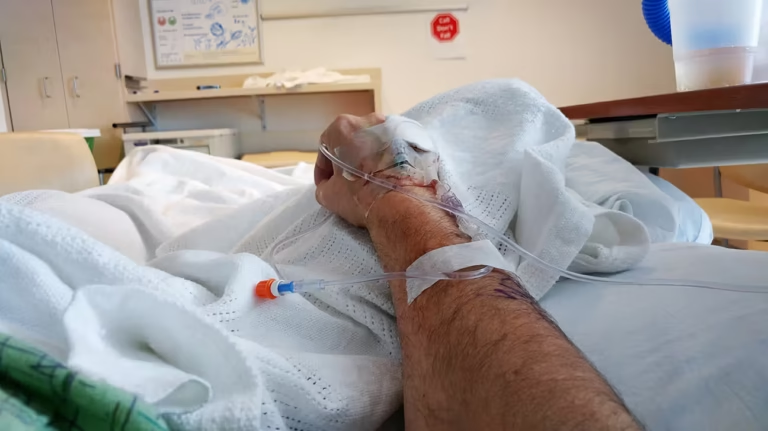Facing cancer can be overwhelming. Asking the right questions empowers you to navigate your treatment with clarity, confidence, and control.
Whether you’re newly diagnosed or already undergoing treatment, open communication with your oncologist is key. Knowing what to ask can help you understand your diagnosis, explore your options, manage side effects, and prepare for life after treatment.
At The Medicine Villa, we’re committed to empowering patients and their loved ones through informed choices. Here are the top questions to ask your oncologist — before, during, and after treatment.
Questions to Ask Your Oncologist
🩺 1. Can You Explain My Diagnosis in Detail?
Don’t hesitate to ask your doctor for a comprehensive breakdown of your cancer. This includes:
- The type and subtype (e.g., adenocarcinoma, squamous cell)
- The stage and whether it has spread
- Tumor size and location
- The grade (how aggressive it appears)
- Any biomarkers or genetic traits
Understanding your exact diagnosis builds the foundation for making informed treatment decisions.
🎯 2. What Are the Primary Goals of My Treatment?
Every cancer treatment plan has specific goals:
- Cure the disease
- Control tumor growth and prevent spread
- Palliate symptoms to improve comfort
Clarifying the treatment goal helps manage your expectations and make meaningful choices about your care.
⚖️ 3. What Are the Benefits and Risks of Each Option?
Each therapy — surgery, chemotherapy, radiation, immunotherapy, or targeted therapy — comes with its own risks and benefits.
Ask questions like:
- What side effects should I expect?
- Are there less toxic alternatives?
- How will each option impact my daily life?
This conversation helps align treatment with your personal goals and lifestyle.
💬 4. How Will Treatment Affect My Quality of Life?
Cancer treatments can impact:
- Appetite and digestion
- Energy and stamina
- Ability to work or travel
- Emotional well-being
- Social relationships
Your oncologist can help you plan for adjustments in your routine so you feel more prepared and supported.
🔬 5. Are There Clinical Trials Available to Me?
Ask if there are ongoing clinical trials that may offer access to innovative therapies, especially if your cancer is rare or advanced. Trials may provide cutting-edge options that are not yet widely available.
🤝 6. What Support Services Can I Access?
Modern cancer care includes more than just treatment. Ask about:
- Counseling and mental health support
- Nutritional guidance
- Pain and symptom management
- Financial counseling
- Support groups
Supportive care helps improve both survival and your quality of life during treatment.
📊 7. How Will We Know If the Treatment Is Working?
Monitoring progress is essential. Your oncologist will assess treatment success by:
- Tumor size reduction
- Improved symptoms
- Lab and imaging results
- Your overall well-being
Understanding how success is measured helps you stay proactive and informed.
🧠 8. What Are the Long-Term Effects of My Treatment?
Some side effects can continue or appear after treatment ends. These may include:
- Fatigue or nerve pain
- Memory or concentration problems
- Fertility concerns
- Heart health risks
- Risk of secondary cancers
Knowing these possibilities helps you plan for survivorship and long-term wellness.
🔄 9. What’s the Follow-Up Plan After Treatment?
Post-treatment care is vital. Be sure to ask about:
- Frequency of check-ups
- Recommended screenings
- Lifestyle tips for ongoing health
- When to expect full recovery
A clear follow-up plan helps reduce anxiety and supports long-term healing.
🧑⚕️ Who Can You Talk To About Your Cancer Treatment?
It’s not just your oncologist. Others who can support you include:
- Nurses – for practical care and emotional support
- Primary doctors – for managing overall health
- Dietitians – for nutritional strength and side effect management
- Pharmacists – for medication guidance
- Financial advisors – for understanding treatment costs
- Support groups – for shared experiences and emotional comfort
- Family or friends – for advocacy and companionship during appointments
✍️ Tips for Asking the Right Questions
- Write your questions ahead of time
- Bring a notebook or record key answers on your phone
- Invite a loved one to attend appointments with you
- Ask for plain language if anything is unclear
- Don’t be afraid to follow up later — your care team is there to help
🧘 How to Process the Answers You Receive
Understanding complex medical info can be tough. Here’s how to cope:
- Give yourself time to absorb what you’ve learned
- Talk through it with trusted friends or family
- Join a support group to connect with others
- Revisit your notes and clarify anything you’re unsure of
- Trust your instincts — this is your journey
🧭 Bottom Line
Cancer brings uncertainty — but asking questions gives you power.
At The Medicine Villa, we believe that informed patients are stronger patients. Open conversations with your care team can ease fear, build confidence, and guide you through each step of your cancer journey — from diagnosis to recovery and beyond.
Research supports the importance of supportive care in cancer treatment for improving quality of life and outcomes.
✅ Stay strong. Stay informed. You’ve got this.
🌐 For supportive care products, supplements, and wellness solutions, visit The Medicine Villa.
























